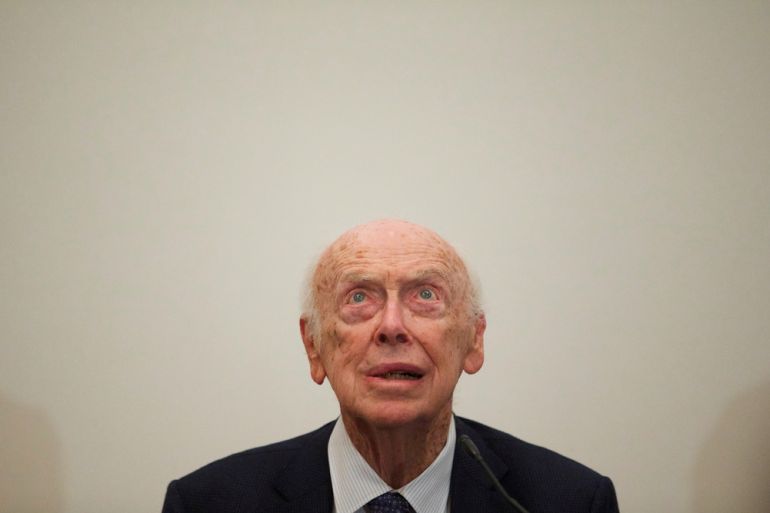James Watson, who co-discovered DNA double helix, dies at 97
Scientist helped break new ground in study of genetics, but later caused outcry with promotion of debunked racist ideas.

Published On 7 Nov 20257 Nov 2025
Save
Scientist James Watson, whose research on the structure of DNA helped pave the way for developments in the study of human genetics, has died at the age of 97.
Watson, a brilliant but controversial figure who later prompted outcry with his promotion of debunked racist ideas, shared the 1962 Nobel Prize in medicine with fellow scientists Francis Crick and Maurice Wilkins for discovering the double helix structure of deoxyribonucleic acid, or DNA.
Recommended Stories
list of 3 itemsend of list
In a statement announcing his death, the Cold Spring Harbor Laboratory, where Watson previously worked, called the discovery a “pivotal moment in the life sciences”. Watson’s son said that he died in hospice care after struggling with a brief illness.
Watson’s discovery helped pave the way for important developments in the alteration of the genetic makeup of living beings and treating diseases through the insertion of genes into patients, along with the increased use of DNA samples in criminology.
“Francis Crick and I made the discovery of the century, that was pretty clear,” he once said, later writing that he could not have anticipated the “explosive impact of the double helix on science and society”.
The image of the double helix, taking the form of a long, twisting ladder, became an iconic symbol of science. Upon first visualising how pieces of DNA could form “rungs” on a ladder, Watson is reported to have reacted by saying, “It’s so beautiful.”
But the famous scientist saw his reputation tarnished by his embrace of long-discredited racist theories.
Advertisement
He stated in 2007 during an interview that he believed the genetics of Black people made them less inherently intelligent than white people, in remarks that sparked an international outcry and resulted in the loss of his position as chancellor of the Cold Spring Harbor Laboratory.
In a television interview in 2019, he said that his beliefs on the matter had not changed. The lab released a statement at the time calling his remarks “reprehensible” and “unsupported by science”.
The long history of pseudo-scientific theories of racial inferiority being used as a pretext for policies of discrimination or even violent subjugation and elimination makes suggestions of genetic differences based on race and ethnicity especially controversial.
“His outbursts, particularly when they reflected on race, were both profoundly misguided and deeply hurtful,” Francis Collins, director of the National Institutes of Health, said in 2019.
“I only wish that Jim’s views on society and humanity could have matched his brilliant scientific insights.”
